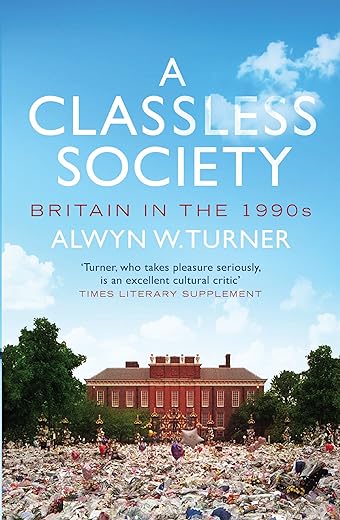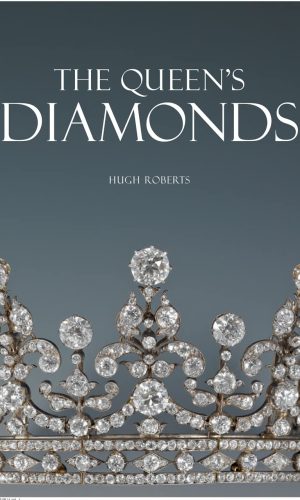A Classless Society: Britain in the 1990s
£2.20
“Superb” NICK COHEN, author of What’s Left?
“Tremendously entertaining” DOMINIC SANDBROOK, Sunday Times
“Like his previous histories of the Seventies and Eighties, A Classless Society is an extraordinarily comprehensive work. Turner writes brilliantly, creating a compelling narrative of the decade, weaving contrasting elements together with a natural storyteller’s aplomb… engaging and unique” IRVINE WELSH, Daily Telegraph
“Ravenously inquisitive, darkly comical and coolly undeceived… Turner is a master of the telling detail” CRAIG BROWN, Mail on Sunday
When Margaret Thatcher was ousted from Downing Street in November 1990 after eleven years of bitter social and economic conflict, many hoped that the decade to come would be more ‘caring’; others hoped that the more radical policies of her revolution might even be overturned. Across politics and culture there was an apparent yearning for something the Iron Lady had famously dismissed: society.
The ‘New Britain’ to emerge would be a contradiction: economically unequal but culturally classless. Whilst Westminster agonised over sleaze and the ERM, the country outside became the playground of the Ladette. It was also a period that would see old moral certainties swept aside, and once venerable institutions descend into farce – followed, in the case of the Royal Family, by tragedy.
Opening with a war in the Gulf and ending with the attacks of 11 September 2001, A Classless Society goes in search of the decade when modern Britain came of age. What it finds is a nation anxiously grappling with new technologies, tentatively embracing new lifestyles, and, above all, forging a new sense of what it means to be British.
“Deserves to become a classic” EDWINA CURRIE
“Rich and encyclopaedic” ROGER LEWIS, Daily Mail
“Excellent” D.J. TAYLOR, Independent
Read more
Additional information
| Publisher | Aurum (5 Sept. 2013) |
|---|---|
| Language | English |
| File size | 16886 KB |
| Text-to-Speech | Enabled |
| Screen Reader | Supported |
| Enhanced typesetting | Enabled |
| X-Ray | Not Enabled |
| Word Wise | Enabled |
| Sticky notes | On Kindle Scribe |
| Print length | 625 pages |










by Jl Adcock
Alwyn Turner’s excellent trilogy of books about Britain across 3 decades comes to an end with A Classless Society: Britain in the 1990s. If it is slightly less engaging than his volumes on the 1970s and the 1980s, then that is perhaps because, in retrospect, the 1990s seem so dull. From the hapless government of John Major, with its small scale ambitions and tales of hypocrisy sleaze, through to the glitz and ultimate emptiness of New Labour, the 1990s really didn’t have too much going for it as a decade.
As with the previous volumes, Turner is really good in how he draws on a range of sources to make the story of those times interesting, funny and accessible. From the Millenium Dome to fears about the Y2K millenium bug, Royal ups and downs, the airing of public grief and the rise of reality stars, the shifts in society are thoughtfully reviewed in this lengthy (perhaps overlong) final volume in an impressive work on modern social history.
Politicians rarely come out of such reviews well. Major and Blair are no exceptions. Major seemed to lurch from one crisis to the next, whilst Blair seemed to want power at all costs, and changed the direction and structure of Labour in order to get there. All rather familiar sounding in our current times – which proves that none of us have learned very much along the way.
Taken as a trilogy, it is really hard to see how the story of our times could be told with more verve. Really enjoyable, but I think Turner has been wise to stop here, rather than continue with 21st Century Britain in more detail.
by Thomas Brown
Very interesting. Too busy to appreciate the New Labour ‘bankruptcy ‘ at the time.
Too anti Tory to have any sympathy for Major.
by Mandrek Larl
Over the last eighteen months or so I have read a number of political and cultural histories of modern Britain, including Alwyn Turner’s two previous books in this series, “Crisis? What Crisis? Britain In The 1970s” and “Rejoice! Rejoice! Britain In The 1980s”, both four star reads, but somehow this book fell a little short for me.
Once again Turner tells the story of the British political landscape, this time dominated by the two prime ministers of the 1990s, John Major and Tony Blair, and sets it against the backdrop of the British [largely popular] culture of the period. But unlike those two books, this volume didn’t entertain me and I found myself wondering how soon I would finish it, particularly when the book strayed from the ’90s to the noughties.
Now to be fair I don’t think that’s all Turner’s fault, I turned thirty in 1990 and as the decade proceeded I settled down: I married, became a parent, bought the family home, found my career direction etc. and with all that I had more interest in, and more time for, current affairs; consequently perhaps there was less for me to discover/re-remember about this period than there had been in other books.
That said what Turner fails to do is present any in-depth analysis of the impact of the changes that occurred in the ’90s, this is just a set of facts, albeit a comprehensive set of facts; what I really wanted to understand was what the ’90s meant for ordinary people. But perhaps it’s too soon to understand the/any lasting impact of Blajorism, or perhaps it’s just that after the upheavals of the ’70s and ’80s the ’90s were a bit superficial and nothing really happened [history’s equivalent of November!].
Recommended only if you can’t remember the ’90s.
by D M FITZGERALD
In his introduction to A Classless Society Alewyn W. Turner writes that he both explores the high politics and the low culture of the nineties because “the latter not only reflects but often pre-empts the former.” To illustrate, he reminds the reader that the infamous meeting between Brown and Blair at the Granita was not the reason why the paparazzi gathered outside the restaurant: the media was far more interested in actor Susan Tully, then playing Michelle Fowler in EastEnders, who was seated at a front table.
Turner’s explorations into the nineties have produced a stimulating, eye-opening and entertaining read. He divides it into two main sections, the first of which moves from the fag-end of Thatcher’s premiership to the end of Tory rule in 1997, where he begins the second.
Each section is sub-divided into chapters all of which begin with a selection of quotations, such as Peter Baynham on New Labour, “A media-friendly, highly electable platoon of smiling, capitalist thugs.” This structure, coupled with his stated intention above, allows Turner to paint a vivid picture of nineties life.
The breadth of his research is impressive. It encompasses quotations from Bernard Manning, a reference to “the Mull of Kintyre test” that was used for female soft porn magazines and he reminds us that at the introduction of the National Lottery a Tory MP thought “Flogging criminals live on television before [it] will create a great impact.”
Turner devotes an appropriate amount of words to the two major politicians of the nineties, John Major and Tony Blair. He is kind to the former, presenting a revisionist stance on the man that inspired Andy Hamilton’s John Major-ogram: “They send round a bloke in a suit. He stands here for ten minutes, no one notices him and he goes away again.”
Tony Blair, however, receives a dressing-down to such an extent that, although the writer does allow the ex-PM a share of the back-slapping for the Good Friday Agreement, he reminds us that the “I feel the hand of history on our shoulders” comment began with “This is no time for sound bites.”
Irvine Welsh comments in his review of the book for The Daily Telegraph that the only thing it lacks is a section on the impact of rave culture. It is a good point but, as Welsh writes, the book is “an otherwise uniformly brilliant work.”